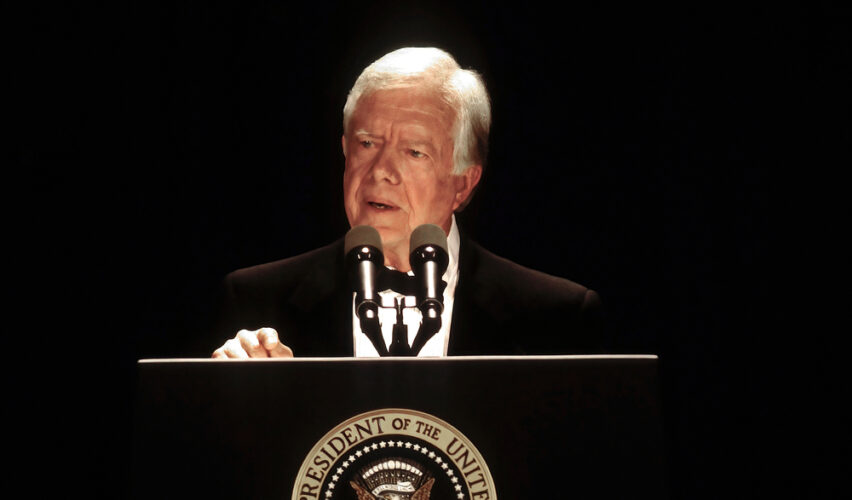When reflecting on the pantheon of American presidents, few individuals stand out as uniquely as Jimmy Carter. The 39th President of the United States, Carter’s life and career were marked not only by his time in the Oval Office but also by his profound humanitarian efforts and unwavering commitment to global peace.
Early Life and Political Rise
Born on October 1, 1924, in Plains, Georgia, James Earl Carter Jr. grew up in a small, rural community. The son of a peanut farmer, Carter’s upbringing instilled in him a strong work ethic and a connection to the land. After graduating from the U.S. Naval Academy in 1946, he served as a naval officer before returning to Georgia to manage the family farm following his father’s death.
Carter’s entry into politics began at the state level, serving in the Georgia State Senate from 1963 to 1967. His reputation as a reformer grew, leading to his election as Georgia’s governor in 1970. During his governorship, he championed civil rights, integrating Georgia’s schools and government and pushing for transparency and efficiency in state operations.
The Presidency: 1977-1981
Carter entered the White House in 1977 during a time of domestic malaise and international uncertainty. His presidency tackled some of the most pressing issues of the era, including the energy crisis, inflation, and the Cold War. While his tenure faced challenges, such as the Iran hostage crisis and economic stagnation, Carter also achieved significant milestones.
Notably, his administration brokered the Camp David Accords, a landmark peace agreement between Egypt and Israel. This achievement solidified his reputation as a peacemaker and highlighted his commitment to diplomacy. Additionally, Carter prioritized human rights, making them a cornerstone of U.S. foreign policy and setting a precedent for future administrations.
Post-Presidency: A New Chapter of Service
Jimmy Carter’s post-presidency is often considered one of the most impactful in American history. Through the Carter Center, established in 1982, he worked tirelessly to promote democracy, eradicate disease, and mediate conflicts worldwide. In 2002, Carter’s dedication to peace and human rights earned him the Nobel Peace Prize. Whether building homes with Habitat for Humanity, teaching Sunday school, or advocating for marginalized communities, his actions reflected a profound commitment to the greater good.
A Day Of Mourning
Jimmy Carter passed away on December 29th at the age of 100. Federal agencies are closed today in observance of a national day of mourning to coincide with the former president’s funeral at the Washington National Cathedral. For more information visit https://www.jimmycartertribute.org/.






















